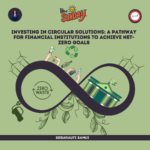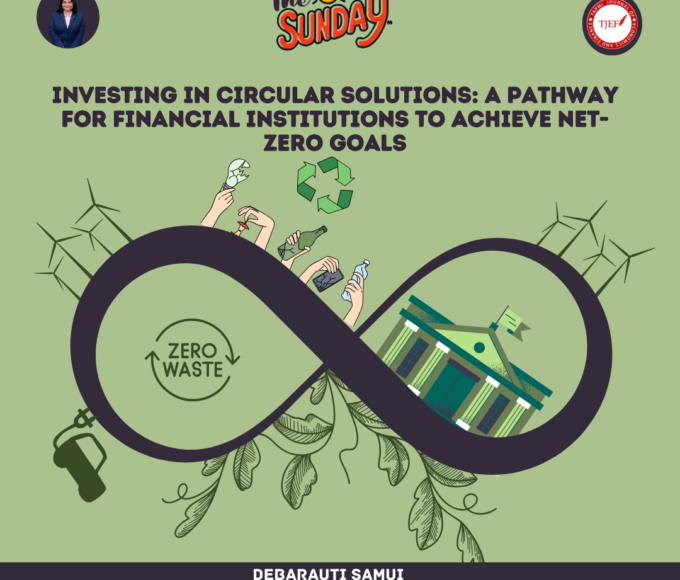
INTRODUCTION
China’s property market has faced several challenges in recent years, including slowing economic growth, a declining population, and a surplus of unsold homes. This has led to a slowdown in the property market, which has significant implications for the Chinese economy as real estate is a major driver of economic growth and a source of employment.
The real estate market in China is currently experiencing one of the most worrisome economic developments worldwide. To put things into perspective, housing accounts for over 70% of household wealth in China, and real estate generates close to one-third of the country’s economic activity. Almost 30% of all bank loans are secured by the real estate sector.
To stimulate the market, the Chinese government has implemented several measures, such as reducing interest rates, lowering down payment requirements, and increasing funding for developers. However, these measures have not been enough to restore the market to its previous levels of activity, and many analysts believe that the property market will continue to face headwinds in the coming years.
The property crisis in China has also had spillover effects on other industries, such as construction and finance, which are closely tied to the real estate market. The ongoing crisis has been a source of concern for policymakers, and it will likely continue to be a major focus of attention in the years to come.

HISTORY
When limitations on buying private property were finally eased in the early 1990s, after decades of Maoist opposition, a mainland middle class quickly emerged, one that was just as fixated on real estate prices as any of their Western counterparts.
China’s urban class, in contrast to the majority of emerging countries, was essentially pretty much locked into its equity, benefiting from a relatively easy transition from tenant to ownership. Well, sort of—private individuals are still not permitted to own land in China, but they are permitted to lease it from the government for a term of 70 years, which is generally believed to be an endless extension. After retirement, so-called boomer urbanites frequently received a nominal payment from their workplace to purchase their home.
It was a riskier lottery if you lived in a rural area because some residents received huge payments for selling their land to the local government, whose representatives then sold it to private developers while keeping sizable “commissions.” Others were hit in the face with a punch and had their front door plowed through.
However, once the market was established, house values increased steadily over time. For Chinese families, who made every effort to climb the ladder, real estate became the most dependable form of investment. 70% of Chinese wealth is held in real estate due to unstable and manipulated stock markets, and land sales continue to be the major source of income for the same dishonest provincial authorities.
THE PROPERTY CRASH
Prices have fluctuated before, but the bubble has never been so close to bursting as it was when Evergrande, a developer and multinational investment firm, started to fall apart in early 2022. This was a long-foretold event, but complacent Chinese President Xi Jinping didn’t seem to take it seriously at the time.
Housing costs stubbornly remained unaltered even as sales and development fell significantly. This is partly due to how much venture capital is locked up in obsolete inventory as well as the strong opposition to price controls on mainland streets.
To control the aforementioned situation, China’s central bank, the People’s Bank of China (PBOC), reduced the five-year Loan Prime Rate (LPR) by the most it had ever done. The cost of home mortgage repayments in China would decrease as a result of the five-year LPR’s 1.5 percentage point reduction to roughly 4.2%.
According to a report from Reuters, the National Bureau of Statistics (NBS) of China revealed in July 2022 that property investment decreased by over 12% year over year in the nation, marking the year’s steepest decline. The beginning of new building by floor area decreased by around 45%, the largest decrease in almost a decade.
Here are a few figures. The second-largest real estate company in the nation, China Evergrande Group, which has been groaning under $300 billion in obligations, is one of the big developers to have defaulted on their payments in the past year. Around 20% of the Chinese developers that S&P Global Ratings ranks are at risk of going bankrupt, the company has warned.
A survey found that between January and June, the amount of housing sales decreased by 27% from the prior year. It’s also growing worse. In over 100 major Chinese cities, July sales dropped 27% from a year earlier and 13% from June. According to consulting firm Capital Economics, around 30 million newly constructed homes remained unsold last year, and an additional 100 million homes were probably purchased but not occupied. In July, home prices fell for the eleventh consecutive month. S&P anticipates a third decrease in home sales in 2022.
Additionally, hundreds of thousands of people are coming together and refusing to pay back their mortgage loans on postponed housing projects in a sort of popular uprising that appeared unthinkable in a nation where the slightest dissent is crushed.
Therefore, heavily leveraged real estate developers are unable to pay off their loans or complete their projects. There are no purchasers for the property that millions of Chinese people purchased with their savings as an investment. Numerous other people still owe mortgages but are unsure of when they will be able to move into their homes. Banks are under pressure from both developers who borrowed money but are unable to repay it and retail customers who will not. Numerous banks have experienced runs when customers attempted to withdraw all their savings in response to rumors that these institutions were insolvent.


CAUSES
- A massive housing bubble was created for at least two decades by a government policy that guaranteed affordable credit for construction projects. Beijing pushed individuals to purchase real estate by keeping interest rates on bank deposits at or very close to zero. There were not many alternative options for regular people to invest their cash. As is typical of bubbles, developers embarked on an impulsive expansion drive, but they never ran out of clients who took out large loans in the hope that prices would continue to rise indefinitely, and they would be able to make a tidy profit one day.
- China’s central bank announced a strict “three red lines” policy in August 2020, placing restrictions on the ratios of a developer’s debt to its cash, equity, and assets. This was the final blow to the country’s efforts to control skyrocketing prices, which had been the subject of regulatory changes since 2017. The real estate industry quickly entered a downward spiral, with a sudden and sharp increase in bond defaults, missed payments, and halted projects.
- Beijing’s relentless zero-covid agenda, which has resulted in numerous protracted lockdowns, affecting economic growth, people’s earnings, and consequently their savings, has made matters worse. Official statistics show that the youth unemployment rate has increased to 20%. Additionally, Sichuan province, a center for manufacturing and lithium mining, experienced a severe drought, forcing the government to order the shutdown of all enterprises for six days to relieve power shortages. Businesses from several sectors, including those like Apple, Tesla, Intel, and Toyota, are impacted by this.
- To combat the real estate problem, the central bank of China has pumped some extra capital into the country’s banking system, but oddly enough, it has placed much of the responsibility on local governments. They are expected to provide developers with relief monies in addition to tax breaks and financial subsidies for homebuyers. However, local governments are not in great financial health, which is ironically due in large part to the country’s real estate bubble popping. The sale of developers’ usage rights to state-owned land used to be one of their main sources of income.
- Developers that are drowning in debt and have millions of unsold flats and unfinished projects won’t likely be purchasing more property anytime soon. In the first half of 2022, the land income received by local governments decreased by 31% annually. New concessions made to both citizens and developers may have disastrous financial effects.
- There are other bigger problems. The mortgage boycott movement shows that the standard of living in China has deteriorated to the point where people will break unbreakable laws. It’s a significant development. In an unprecedented move, Xi Jinping wants to win a third term as president. He will most likely get his desire, but perhaps his reputation as a superhuman being who is infallible has taken a hit among his people. The reality is that since the start of the pandemic, Xi’s strict policies have severely harmed the second-largest economy in the world. Furthermore, considering China’s pivotal role in the world economy, the consequences might not just affect Chinese people.
IMPACT ON INDIA
- The Indian real estate markets will benefit from this, which will accelerate expansion. India’s quick urbanization, the 4700 Amrut 2.0 cities named, the Make in India program, and the extensive metro train construction. Urbanization and higher consumer expenditure are both being fueled by the massive emphasis on building highways and bridges that connect cities. This is driving up demand for both residential and commercial real estate.
- If China’s twin problems result in a sustained downturn in the Chinese real estate market, India’s robust iron ore exports, much of which is bound for China, could suffer.
- Investors seeking higher profits are moving their capital away from Chinese developers and towards Indian developers, where the returns are currently three times higher.
- The real estate market in China, which contributes about 30% of the nation’s GDP, has seen a 72 percent decline in property sales over the past year. The lessons India should learn from the Chinese catastrophe, are that investment instruments that are driven by mindless social standards will typically come at a significant cost to both people and the economy. Second, while a company’s debt accumulation may initially appear to be accelerating growth, in today’s unpredictable, uncertain, and chaotic market environment, it runs the danger of everything collapsing at once.
- The Chinese crisis has taught us that Indian developers need to carefully analyze their financial risks and re-evaluate their business plans to make them more resilient in the current economic environment.
–TJEF EDITOR
Simran Soni

















Leave a comment